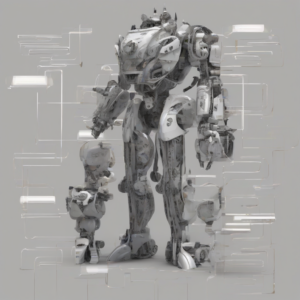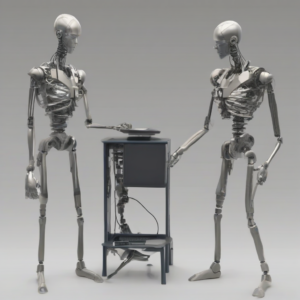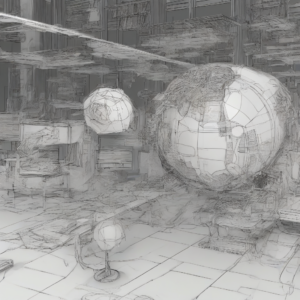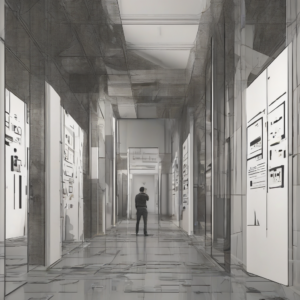Mastering Commercial Heating and Cooling: A Comprehensive Guide to Systems, Maintenance, and Efficiency
Commercial heating and cooling systems are the backbone of comfortable and productive workspaces. Understanding their intricacies, maintenance needs, and efficiency strategies is crucial for business owners and facility managers alike. This guide delves into the various aspects of commercial HVAC, providing a comprehensive overview for informed decision-making.
Types of Commercial Heating Systems
- Boilers: Boilers heat water or steam, which is then circulated throughout the building to radiators or fan coil units. They are efficient for large spaces but require significant upfront investment and maintenance.
- Furnaces: Furnaces heat air directly and distribute it through ductwork. They are commonly used in smaller commercial buildings and offer relatively lower initial costs compared to boilers.
- Heat Pumps: Heat pumps transfer heat from one area to another, providing both heating and cooling. They are energy-efficient, but their effectiveness can be reduced in extremely cold climates.
- Radiant Heating: Radiant heating systems use pipes embedded in floors or ceilings to radiate heat directly into the space. They offer even heating and are energy-efficient, but installation can be complex and costly.
- Unit Heaters: Unit heaters are self-contained heating units that are commonly used in warehouses, garages, and other industrial settings. They are relatively inexpensive and easy to install, but may not be suitable for all commercial spaces.
Types of Commercial Cooling Systems
- Chillers: Chillers cool water, which is then circulated throughout the building to air handling units or fan coil units. They are commonly used in large commercial buildings and offer high cooling capacity.
- Packaged Air Conditioners: Packaged air conditioners are self-contained units that provide both heating and cooling. They are commonly used in smaller commercial buildings and are relatively easy to install.
- Split Systems: Split systems consist of an outdoor unit (condenser) and an indoor unit (evaporator), connected by refrigerant lines. They are flexible and can be adapted to various building configurations.
- VRF (Variable Refrigerant Flow) Systems: VRF systems offer precise temperature control in different zones of a building, improving energy efficiency. They are more complex and expensive than other systems.
- Evaporative Coolers: Evaporative coolers (swamp coolers) cool air by evaporating water. They are energy-efficient but are not effective in humid climates.
Factors to Consider When Choosing a System
- Building size and layout: The size and design of the building will influence the type and capacity of the HVAC system required.
- Climate: The local climate will determine the heating and cooling loads and influence the choice of system.
- Budget: The initial cost of the system, as well as ongoing maintenance and operating costs, should be considered.
- Energy efficiency: Selecting an energy-efficient system can significantly reduce operating costs over the long term.
- Occupancy: The number of occupants and their activity levels will affect the heating and cooling demands.
- Specific needs: Certain businesses may have specific needs, such as humidity control or air filtration, that should be considered when selecting an HVAC system.
Commercial HVAC Maintenance and Service
Regular maintenance is crucial for the efficient and reliable operation of commercial HVAC systems. Preventive maintenance can extend the lifespan of the equipment, reduce energy consumption, and prevent costly breakdowns.
- Regular inspections: Regular inspections by qualified technicians should be scheduled to identify and address potential problems before they become major issues.
- Filter changes: Air filters should be changed regularly to maintain air quality and prevent the buildup of dust and debris.
- Coil cleaning: Evaporator and condenser coils should be cleaned regularly to remove dirt and debris, improving efficiency.
- Refrigerant checks: Refrigerant levels should be checked regularly to ensure proper system operation.
- Belt and motor inspections: Belts and motors should be inspected for wear and tear and replaced as needed.
- Component lubrication: Moving parts should be lubricated regularly to prevent premature wear.
Improving HVAC Efficiency
Several strategies can be implemented to improve the energy efficiency of commercial HVAC systems:
- Proper insulation: Adequate insulation of the building envelope can significantly reduce heating and cooling loads.
- Air sealing: Sealing air leaks can prevent energy loss and improve the efficiency of the HVAC system.
- Smart thermostats: Smart thermostats can optimize heating and cooling based on occupancy and weather conditions.
- Demand-controlled ventilation: Demand-controlled ventilation systems adjust ventilation rates based on occupancy levels, reducing energy consumption.
- Energy-efficient equipment: Selecting high-efficiency HVAC equipment can significantly reduce energy consumption.
- Regular maintenance: Regular maintenance ensures optimal performance and reduces energy waste.
- Zoning: Dividing the building into zones allows for independent temperature control, improving efficiency.
Troubleshooting Common HVAC Issues
- No heating or cooling: Check the thermostat settings, power supply, and circuit breakers. If the problem persists, contact a qualified technician.
- Uneven heating or cooling: Check for air leaks, blocked vents, and dirty filters. Consider zoning options for better temperature control.
- High energy bills: Check for insulation and air sealing issues, consider upgrading to high-efficiency equipment, and schedule regular maintenance.
- Strange noises: Unusual noises can indicate a problem with the system. Contact a technician for inspection and repair.
- Poor air quality: Check and replace air filters regularly. Consider adding air purifiers or upgrading the ventilation system.
The Importance of Professional HVAC Services
Regular maintenance and repairs should always be performed by qualified and experienced HVAC technicians. Improper maintenance can lead to safety hazards, reduced efficiency, and costly repairs.
- Expertise and experience: Qualified technicians possess the knowledge and experience to diagnose and repair complex HVAC systems.
- Safety: Working with HVAC systems involves handling refrigerants and other potentially hazardous materials. Professional technicians are trained to handle these materials safely.
- Warranty: Using qualified technicians ensures that warranty claims are valid.
- Efficiency: Professionals use specialized tools and techniques to diagnose and repair problems efficiently.
Choosing the Right HVAC Contractor
- Licensing and insurance: Verify that the contractor is properly licensed and insured.
- Experience: Look for contractors with extensive experience in commercial HVAC systems.
- Reputation: Check online reviews and testimonials to assess the contractor’s reputation.
- Warranty: Inquire about warranties on equipment and services.
- Pricing: Obtain detailed quotes from multiple contractors before making a decision.
Emerging Trends in Commercial HVAC
- Smart building technology: Integration of smart building technologies with HVAC systems allows for improved energy efficiency and remote monitoring.
- Renewable energy integration: Integrating renewable energy sources, such as solar power, can reduce reliance on fossil fuels and lower operating costs.
- Improved air quality: Focus on improving indoor air quality through advanced filtration and ventilation systems.
- Data-driven optimization: Use of data analytics to optimize system performance and reduce energy consumption.





